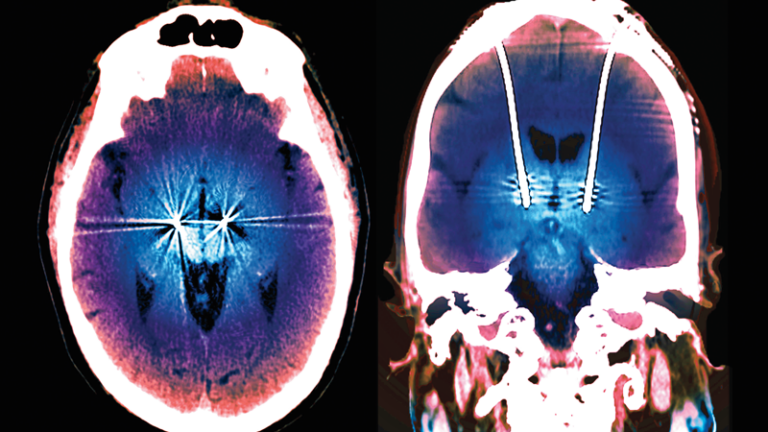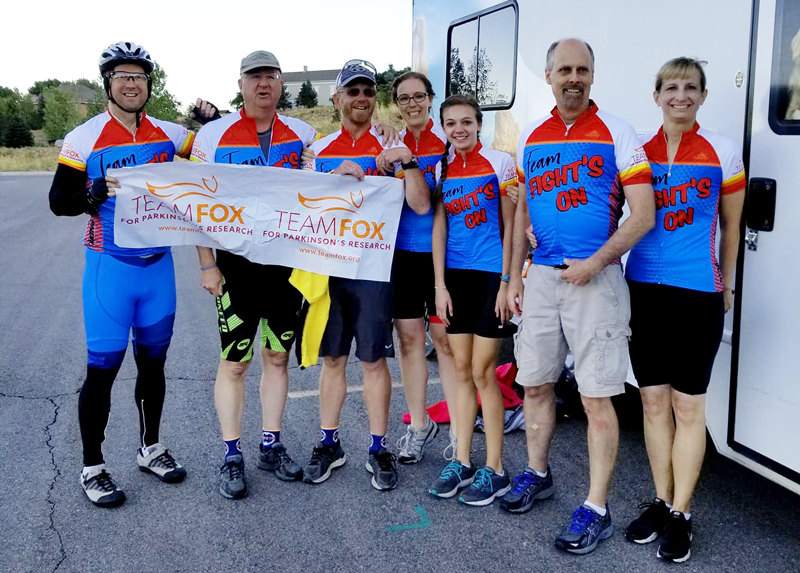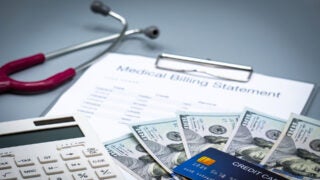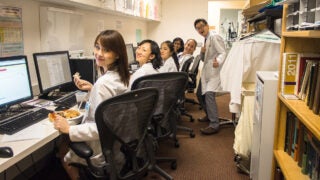
For Parkinson’s Patient, a ‘Mobility Miracle’
After undergoing deep brain stimulation, Robert Warner can once again drive, type and work out.
Right before Robert Warner was wheeled into the operating room at Keck Hospital of USC, his surgeon asked him to open and close his hands. It took the Parkinson’s patient three seconds.
Opting for a surgery that he hoped would restore some of his independence, Warner was about to have electrodes attached to his brain in a procedure called deep brain stimulation, or DBS, at USC. The electrodes would ultimately be connected to a box secured under the skin on his chest.
He was awake when the surgeon turned on the electrical current. This time, when his surgeon asked him to make a fist, Warner clenched his fingers instantly.
“I actually cried,” he says. “It was just incredible. A miracle.”
Warner, 44, has lived with Parkinson’s for 11 years. It was 2007 when he first noticed his pinkie moving on its own. He chalked it up to a shoulder injury he’d sustained in a recent triathlon, and went to see a doctor.

Thus began 14 months of consulting with physician after physician, searching for an answer to his increasingly debilitating symptoms. At one point, Warner believed he had ALS, or Lou Gehrig’s disease, another degenerative neurological disease, but one that has a two- to five-year life expectancy. “That was three months of thinking I wouldn’t be around to see my kids grow up,” says the father of four young children.
Finally, in 2008, doctors confirmed a Parkinson’s diagnosis. Warner soon began a regimen of exercise and medication, which worked for a while. But by November 2015, he was taking about 20 pills a day. When he tried to work out, his leg began to twist. “I need to exercise more to get better, but I can’t because these symptoms are happening,” he says.
He elected to undergo DBS surgery at USC to help improve his motor skills, and the change has made a huge difference in his daily life. He dropped to six pills a day and he can exercise again. He also has been able to keep working as an engineering supervisor at Edwards Air Force Base.
“As an engineer, I spend a lot of time at my desk. Being able to type is a make-or-break thing for me,” he says.
And best of all, he’s gotten back some of his independence. He can still drive, making the two-hour drive from Tehachapi, California, to see his Keck Medicine physicians in east Los Angeles for regular checkups.



